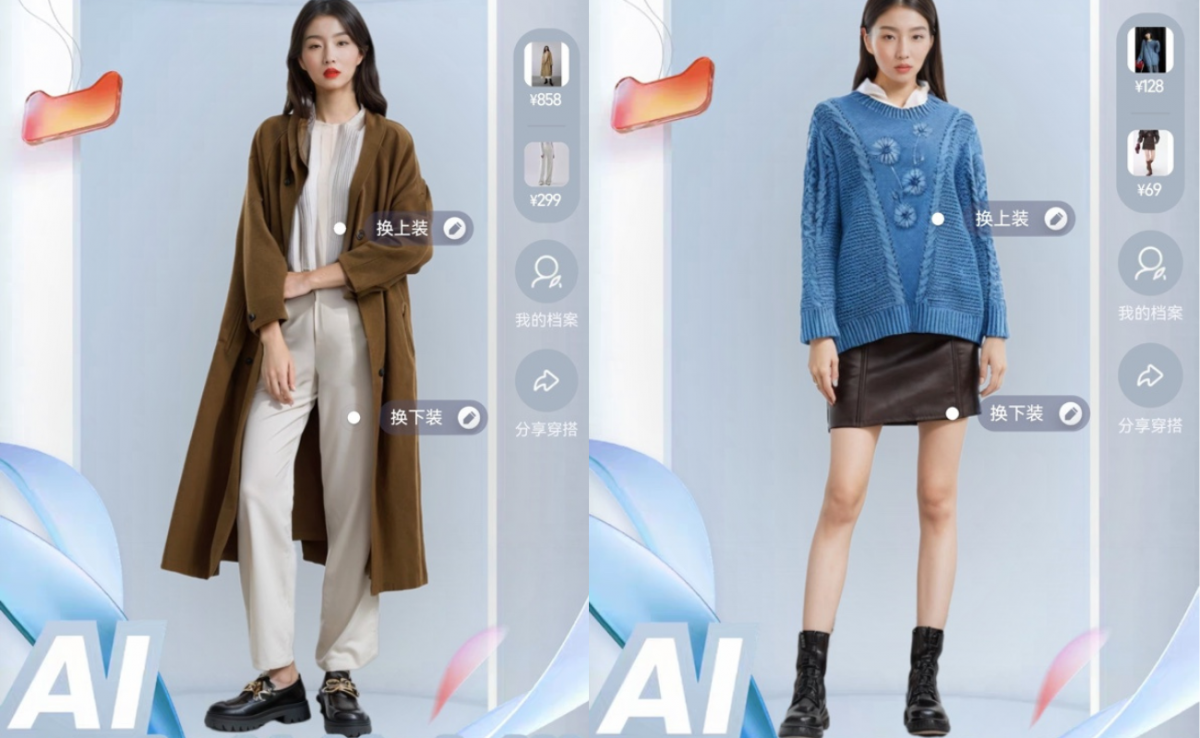


Photo credit: Shutterstock
Collins Dictionary has named AI the word of the year after use of the term quadrupled in 2023. The technology has indeed been much discussed, lauded and feared. But what of its real-world practical applications?
For retailers, nowhere was there a bigger display of AI in action than during the world’s largest shopping festival, 11.11. AI tools successfully improved shoppers’ experiences, increased personalization and rendered merchants’ operations more efficient and sustainable.
Also known as Singles’ Day or Double 11, the festival is a pivotal time for companies, large and small. A record number of merchants and brands invested in marketing campaigns on Alibaba Group’s Chinese marketplaces Taobao and Tmall during the shopping festival.
Taobao, China’s largest digital retail platform, tapped Alibaba Cloud’s large language model (LLM) Tongyi Qianwen to serve digitally savvy Chinese consumers and give merchants access to the latest AI tools.
In a recent report, KPMG consultants said generative AI is a potential game changer for the consumer and retail sector as it could drive better business outcomes on a broad front. KPMG advised companies to deploy an enterprise-class generative AI engine so they could train in a secure environment on proprietary data.
Alibaba Cloud’s CTO Jingren Zhou said: “We aim to serve as an enabler for businesses from various sectors to benefit from generative AI and welcome innovations across Alibaba’s ecosystem in generative AI model building and AI applications development.”
Smooth Shopping
When Alibaba Cloud rolled out Tongyi Qianwen in April, Alibaba said it would run applications across its ecosystem on the large language model.
In one example among many, Alibaba’s Taobao and Tmall smart customer service chatbot Ali Xiaomi leans on the LLM. The assistant provides more personalized and accurate answers to customer questions than traditional chatbots, thanks to the LLM’s natural language comprehension. For example, when users’ queries are unclear, it can ask follow-up questions to help clarify requests.
The chatbot can also help users navigate services, such as order tracking and returns, with less wait time and service delays, lowering dissatisfaction levels.



Merchants selling on Tmall and Taobao can also reap the benefits of generative AI with tools that help automate daily routines, from writing headlines and drafting campaign copy to answering questions about 11.11 promotion rules. Tens of thousands of merchants tapped the tool to learn how to run promotions in the highly competitive 11.11 sales.
Generative AI also helped Taobao deliver a more immersive shopping experience this year with a virtual try-on feature. Built based on Alibaba Cloud’s proprietary AI model, trying clothes on virtually allows consumers to visualize how clothing would look in real life. The consumer uploads a selfie to see how clothes would stretch, cling, and fold on their bodies.
The feature is available for clothes from over 3,500 merchants on Taobao. Since beta testing began in June, over 500,000 users have used it.
Greener Choices
Brands and retailers also used another AI-based tool called Energy Expert during 11.11 to cut their carbon footprint and certify their carbon-reduction efforts to help consumers make more informed choices.
More than three in four consumers would appreciate information on making environmentally friendly online purchases, a consumer sustainability report commissioned by Alibaba Group revealed earlier this year.
The software-as-a-service tool created by Alibaba’s cloud computing arm measures greenhouse gas emissions. Energy Expert leverages deep learning-based AI models to analyze the carbon footprint of products, making carbon footprint modeling more efficient and accurate. It also taps into language models to summarize and generate industry insights on carbon emission reduction for its corporate customers.
For example, U.S. sports brand Brooks Sports slashed the carbon emissions of its running shoe collection Ghost 15 by 1 kg per pair using recycled materials, equivalent to the carbon dioxide produced by driving a small car 4.88 km, certified by Energy Expert.
On brands’ and retailers’ product information pages on Taobao, consumers can see detailed carbon reduction certification information and earn points in Alibaba’s carbon ledger platform proportionate to the amount of carbon emissions slashed.
Swedish food company Oatly also tapped Energy Expert this 11.11 to certify its raincoat. Oatly said it believes that calculating the carbon footprint at different stages of production could prompt suppliers to reduce their carbon emissions.





